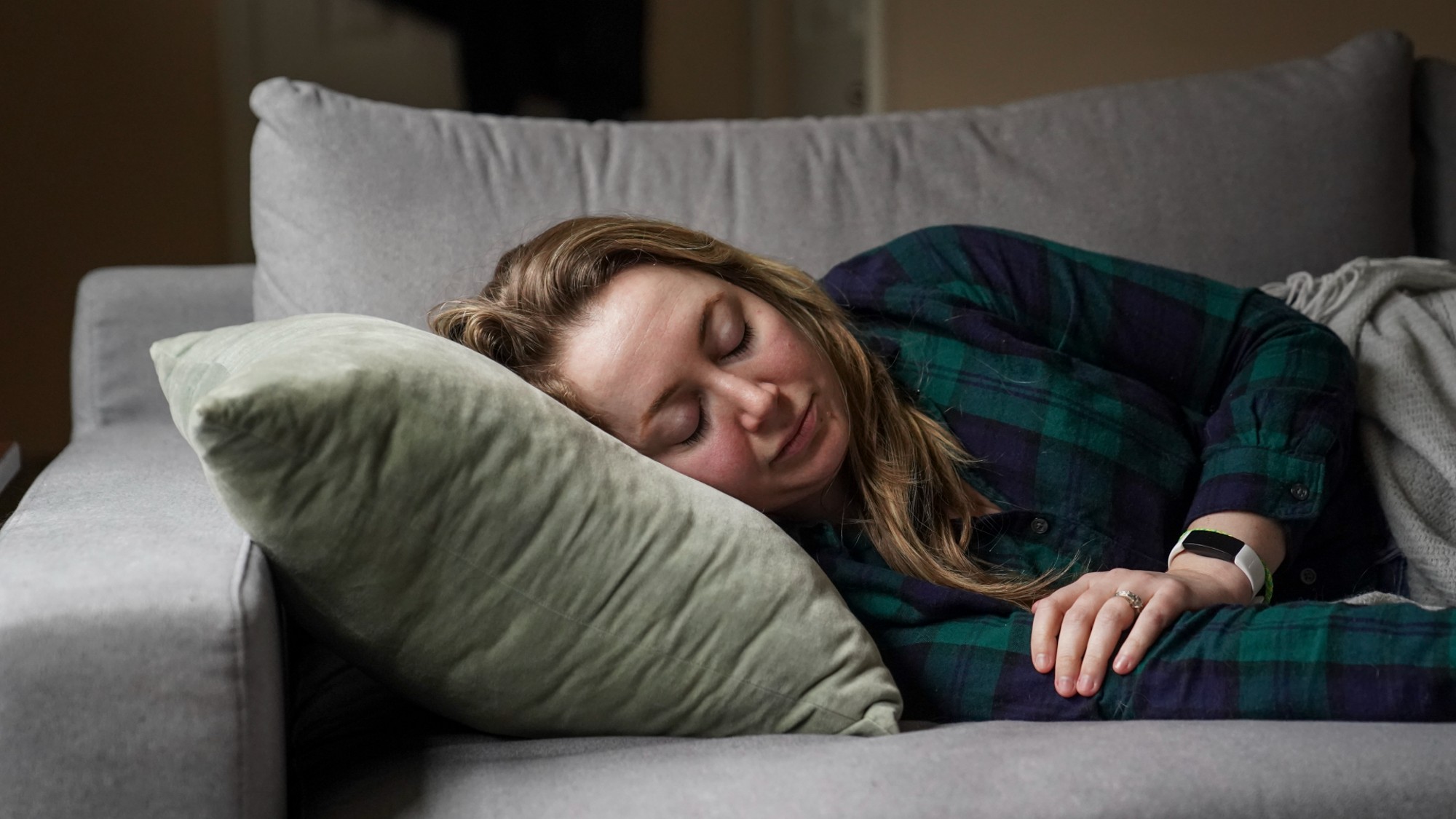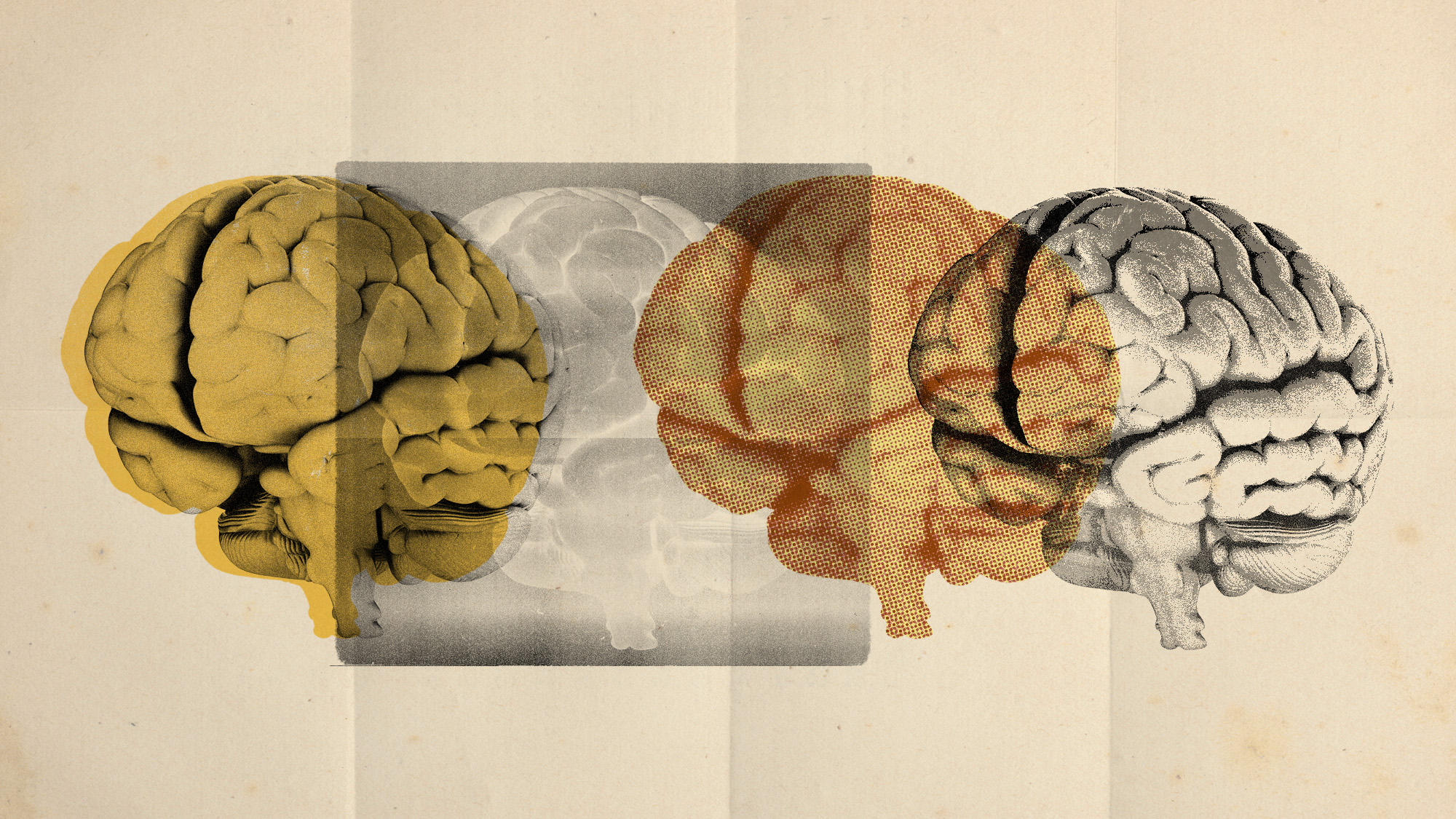Long Covid and chronic pain: is it all in the mind?
'Retraining the brain' could offer a solution for some long Covid sufferers

A free daily email with the biggest news stories of the day – and the best features from TheWeek.com
You are now subscribed
Your newsletter sign-up was successful
Patients and parents of children with long Covid say they are being offered psychological treatments to tackle their physical symptoms.
The condition affects around two million people in England and Scotland, according to the latest Office for National Statistics (ONS) figures. And with no approved treatment path for patients, some have been experimenting with rewiring their minds in an attempt to manage their symptoms.
Why is treating long Covid so difficult?
Long Covid is an "umbrella term to describe a range of different problems in different people", said the BBC. There is currently "no official test or approved treatment" for the condition.
The Week
Escape your echo chamber. Get the facts behind the news, plus analysis from multiple perspectives.

Sign up for The Week's Free Newsletters
From our morning news briefing to a weekly Good News Newsletter, get the best of The Week delivered directly to your inbox.
From our morning news briefing to a weekly Good News Newsletter, get the best of The Week delivered directly to your inbox.
And with illnesses with no direct test available, there is a "history of branding them as being driven by mindset". This is an "ongoing challenge" for people with myalgic encephalomyelitis or ME, said the broadcaster.
And the same is true of long Covid. "Doctors struggle to diagnose the condition due to its complex range of symptoms and often treat it as a psychological rather than physical disease," said the i news site. A number of parents said they had been accused of faking or exaggerating their children's illness as a result.
The ONS figures show an estimated 62,000 children aged between two and 16 years old have reported suffering from long Covid, but when parents have sought a diagnosis from their GP or cited it as a reason for missing school, they have been accused of fabricated or induced illness (FII) – a form of child abuse in which a parent exaggerates or causes their child's illness.
What options do patients have?
Recovery from Covid and long Covid is "different for everybody", said the NHS. The health service advises ways to treat specific symptoms, such as fatigue, mental health concerns and breathlessness.
A free daily email with the biggest news stories of the day – and the best features from TheWeek.com
But with around 381,000 people with the condition reporting that their ability to undertake daily activities has been "limited a lot", said the ONS, some are turning to alternative treatment paths. Speaking to the BBC, former Team GB rower Oonagh Cousins described taking a course called the "Lightning Process", which "teaches people they can rewire their brains to stop or improve long Covid symptoms quickly", said the broadcaster.
"They were trying to suggest that I could think my way out of the symptoms, basically. And I disputed that entirely," the former rower told the BBC. "I had a very clearly physical illness. And I felt that they were blaming my negative thought processes for why I was ill."
Some people said they felt worse after taking the course, and others felt they were being "blamed" for their symptoms, a claim denied by the programme's founder, Dr Phil Parker. And while it wasn't successful for all, some people told the BBC the course had helped "a lot", with one woman saying she had started to "feel better almost immediately".
How do psychological treatments work?
There is some evidence that "retraining the brain" could hold a possible solution for people with chronic pain, and some long Covid sufferers.
The findings of a small study published last year in the journal JAMA Network Open by researchers at the University of Colorado Anschutz Medical Campus provided "new evidence supporting the effectiveness of brain-based treatments for chronic back pain", one of the most common and debilitating forms of pain, reported Medical News Today.
Through pain reprocessing therapy, a psychological treatment that teaches people to recognise pain signals sent to the brain as less threatening, the team found that "66% of participants reported being pain-free or nearly pain-free", compared with 20% of people who received a placebo, said co-author Yoni Ashar in The Conversation.
A separate 2022 study, also published in JAMA, put a group of 138 Sydney-based lower-back pain sufferers through a 12-week "sensorimotor retraining programme", in which physiotherapists taught them the unhappy science behind chronic pain, and then "retrained" their brains while increasing activity level. "Neuroplasticity – the wellness buzzword of the moment – is behind both the development of chronic pain and the success of the JAMA study," said Julia Buckley, author of "Heal Me", in The Times in 2022.
"Brains strengthen neural pathways they are using and bypass those they are not, meaning that the longer that alarm is misfiring, the more your brain is normalising the new pathways" so "the longer you're in pain, the less chance you have of getting out of it."
But neuroscientist Dr Camilla Nord, speaking to the BBC, said that while the brain can create physical symptoms of ill health, "it's a wild claim to say there's nothing wrong with your body". Psychologically focused therapies can "calm the body's stress response and adjust how people react to their symptoms", she said, but even if the symptoms are based in the brain, that's not necessarily "something that you can actively change".
Is long Covid care improving?
Leading long Covid researcher Professor Danny Altmann told the BBC that in England, care for patients with the condition is "uneven". The NHS has invested significant resource in support services in recent years, but data suggests care remains limited.
Of 58 NHS trusts that responded to a Freedom of Information request issued by the broadcaster, just seven said they had a full-time doctor on staff, and 24 said they could not prescribe medication. Treatment for the condition, said Altmann, has become a "postcode lottery".
-
 How the FCC’s ‘equal time’ rule works
How the FCC’s ‘equal time’ rule worksIn the Spotlight The law is at the heart of the Colbert-CBS conflict
-
 What is the endgame in the DHS shutdown?
What is the endgame in the DHS shutdown?Today’s Big Question Democrats want to rein in ICE’s immigration crackdown
-
 ‘Poor time management isn’t just an inconvenience’
‘Poor time management isn’t just an inconvenience’Instant Opinion Opinion, comment and editorials of the day
-
 ‘Longevity fixation syndrome’: the allure of eternal youth
‘Longevity fixation syndrome’: the allure of eternal youthIn The Spotlight Obsession with beating biological clock identified as damaging new addiction
-
 A Nipah virus outbreak in India has brought back Covid-era surveillance
A Nipah virus outbreak in India has brought back Covid-era surveillanceUnder the radar The disease can spread through animals and humans
-
 RFK Jr. sets his sights on linking antidepressants to mass violence
RFK Jr. sets his sights on linking antidepressants to mass violenceThe Explainer The health secretary’s crusade to Make America Healthy Again has vital mental health medications on the agenda
-
 Covid-19 mRNA vaccines could help fight cancer
Covid-19 mRNA vaccines could help fight cancerUnder the radar They boost the immune system
-
 The new Stratus Covid strain – and why it’s on the rise
The new Stratus Covid strain – and why it’s on the riseThe Explainer ‘No evidence’ new variant is more dangerous or that vaccines won’t work against it, say UK health experts
-
 RFK Jr. vaccine panel advises restricting MMRV shot
RFK Jr. vaccine panel advises restricting MMRV shotSpeed Read The committee voted to restrict access to a childhood vaccine against chickenpox
-
 The app tackling porn addiction
The app tackling porn addictionUnder the Radar Blending behavioural science with cutting-edge technology, Quittr is part of a growing abstinence movement among men focused on self-improvement
-
 Scientists have identified 4 distinct autism subtypes
Scientists have identified 4 distinct autism subtypesUnder the radar They could lead to more accurate diagnosis and care